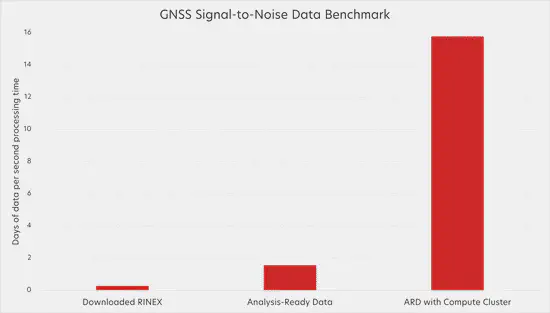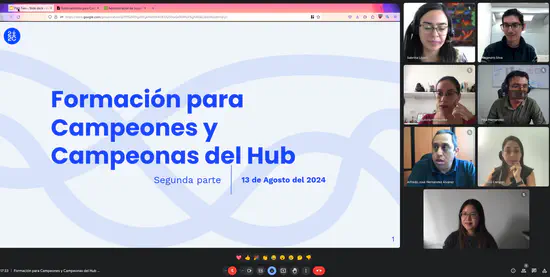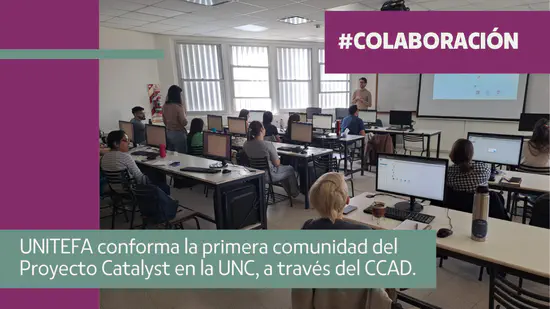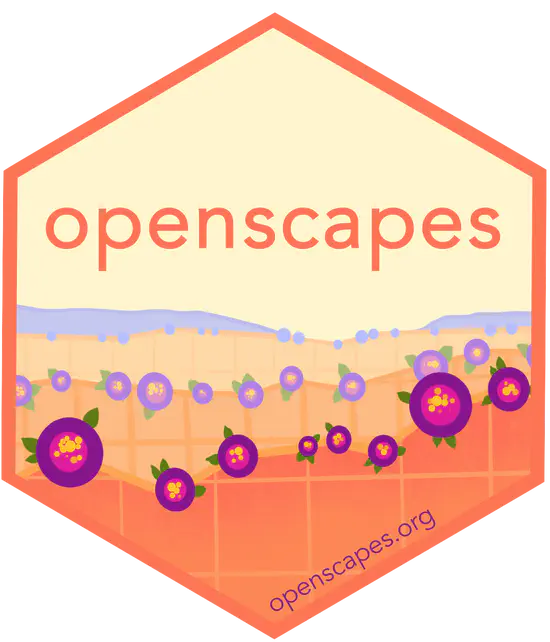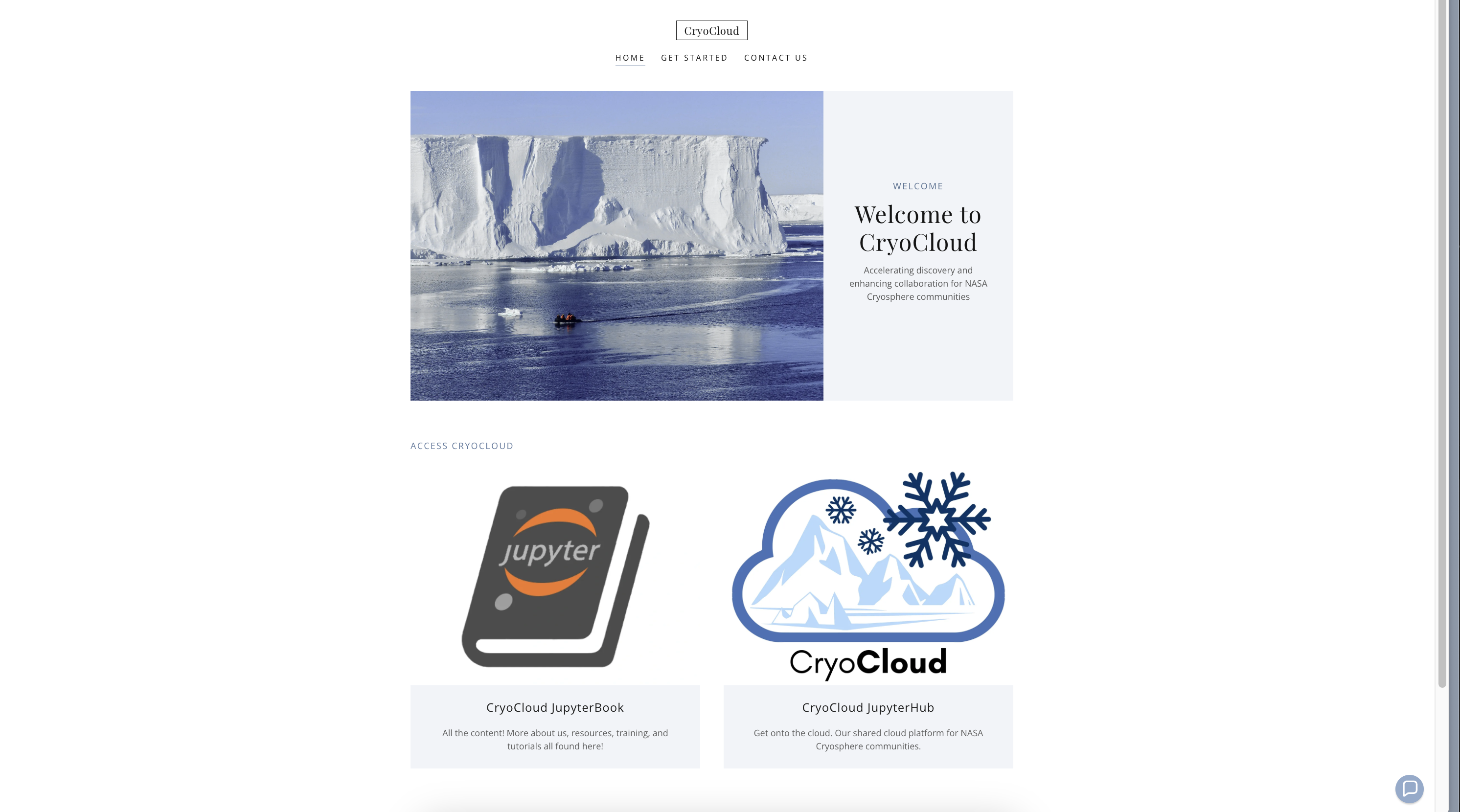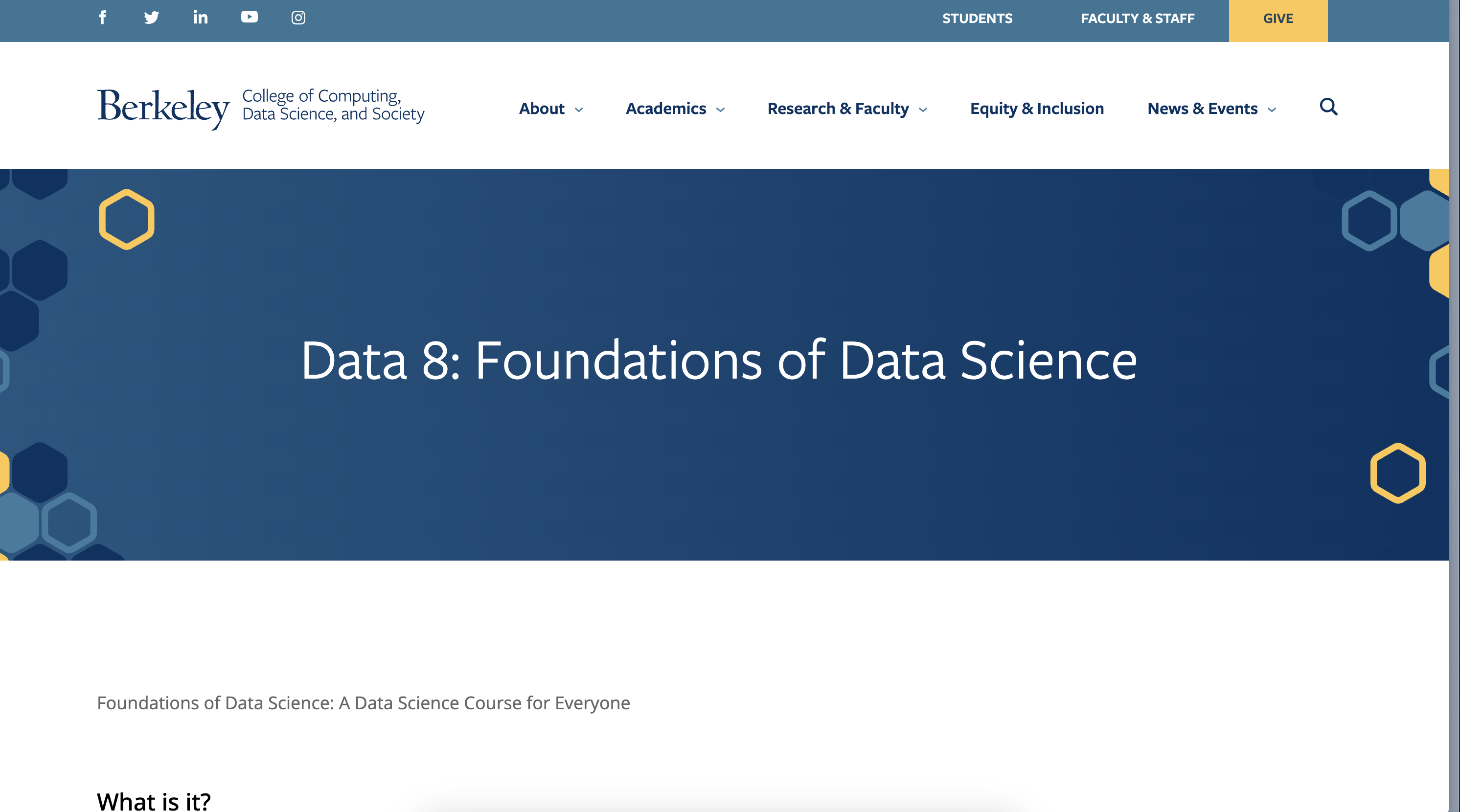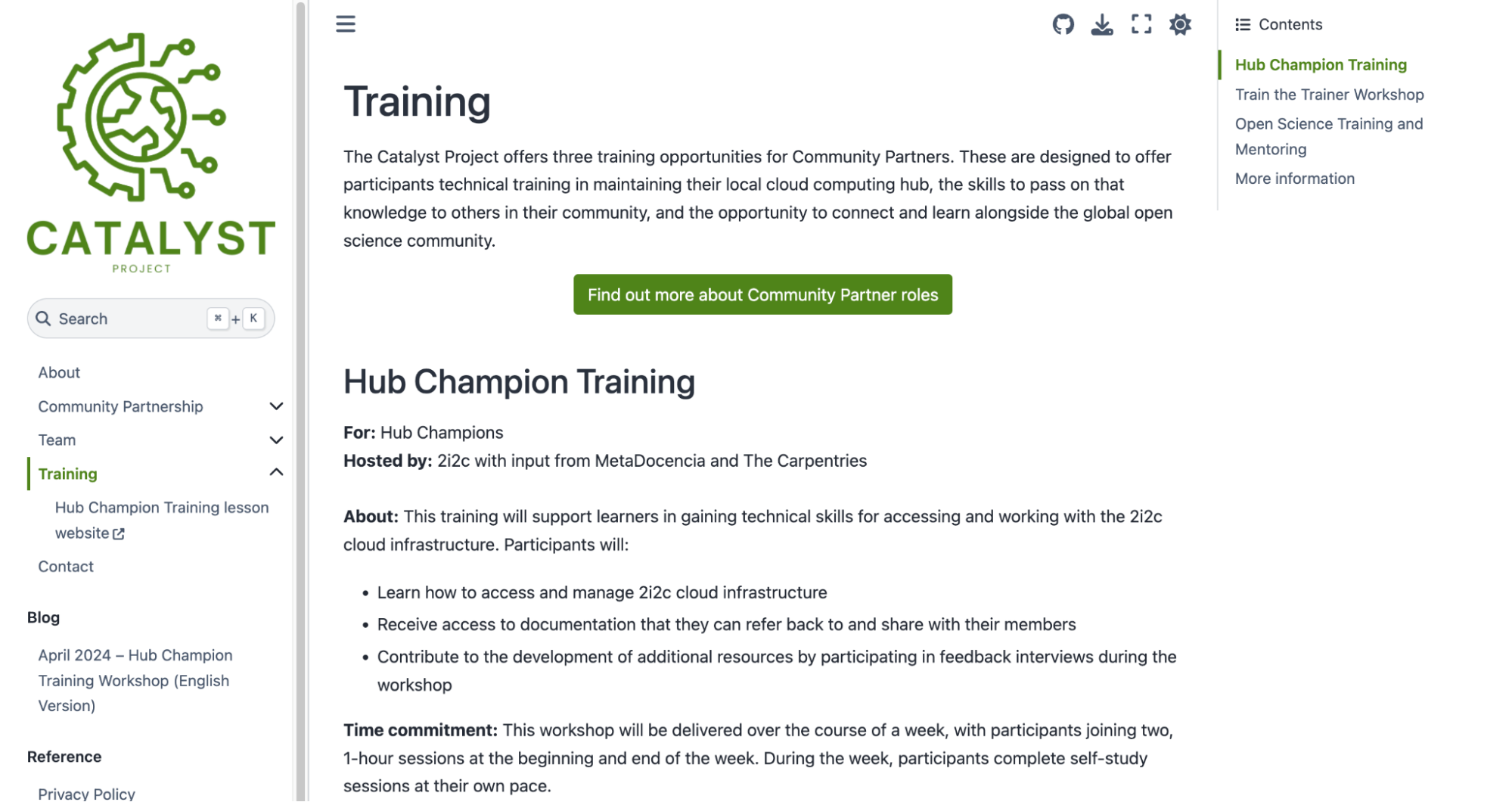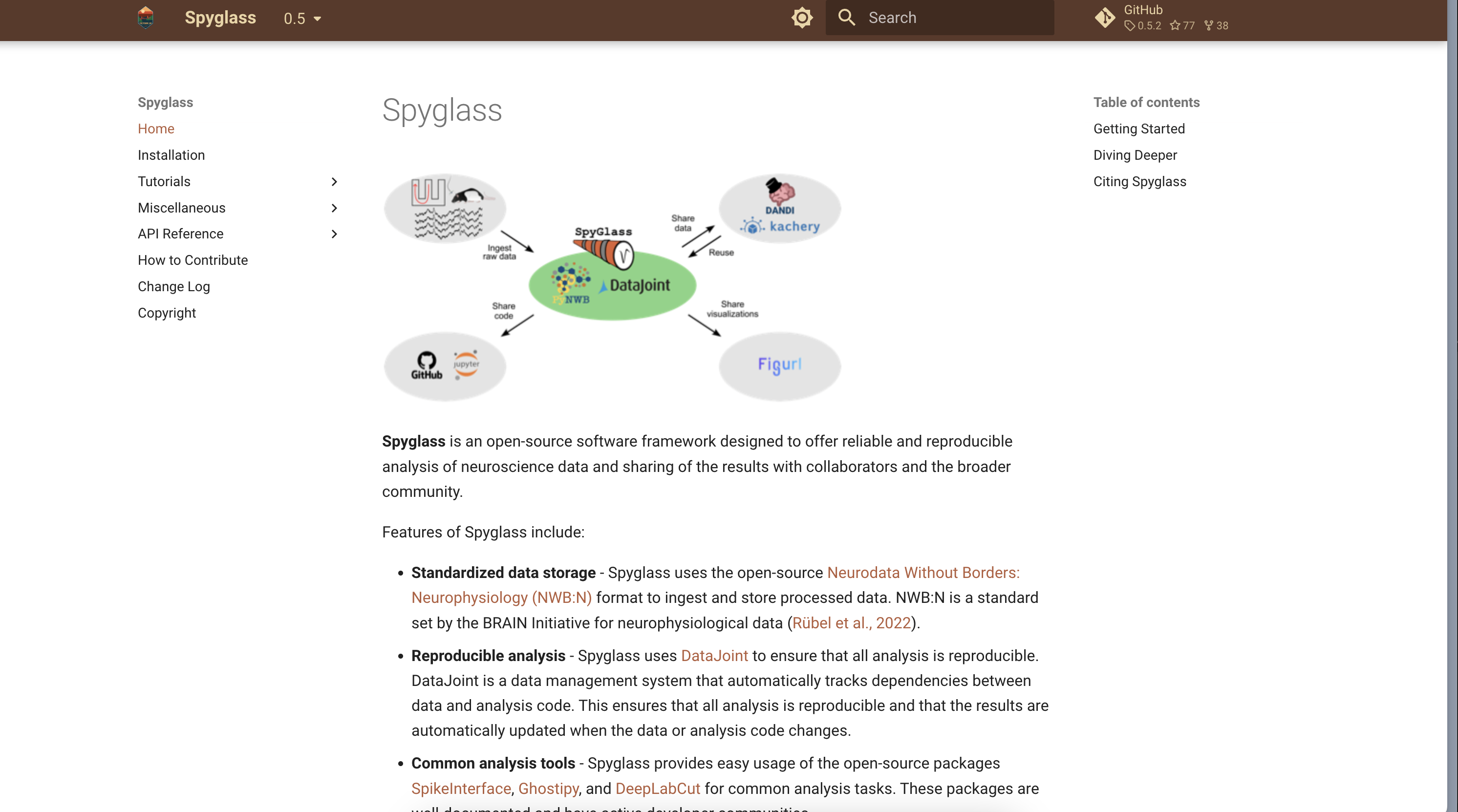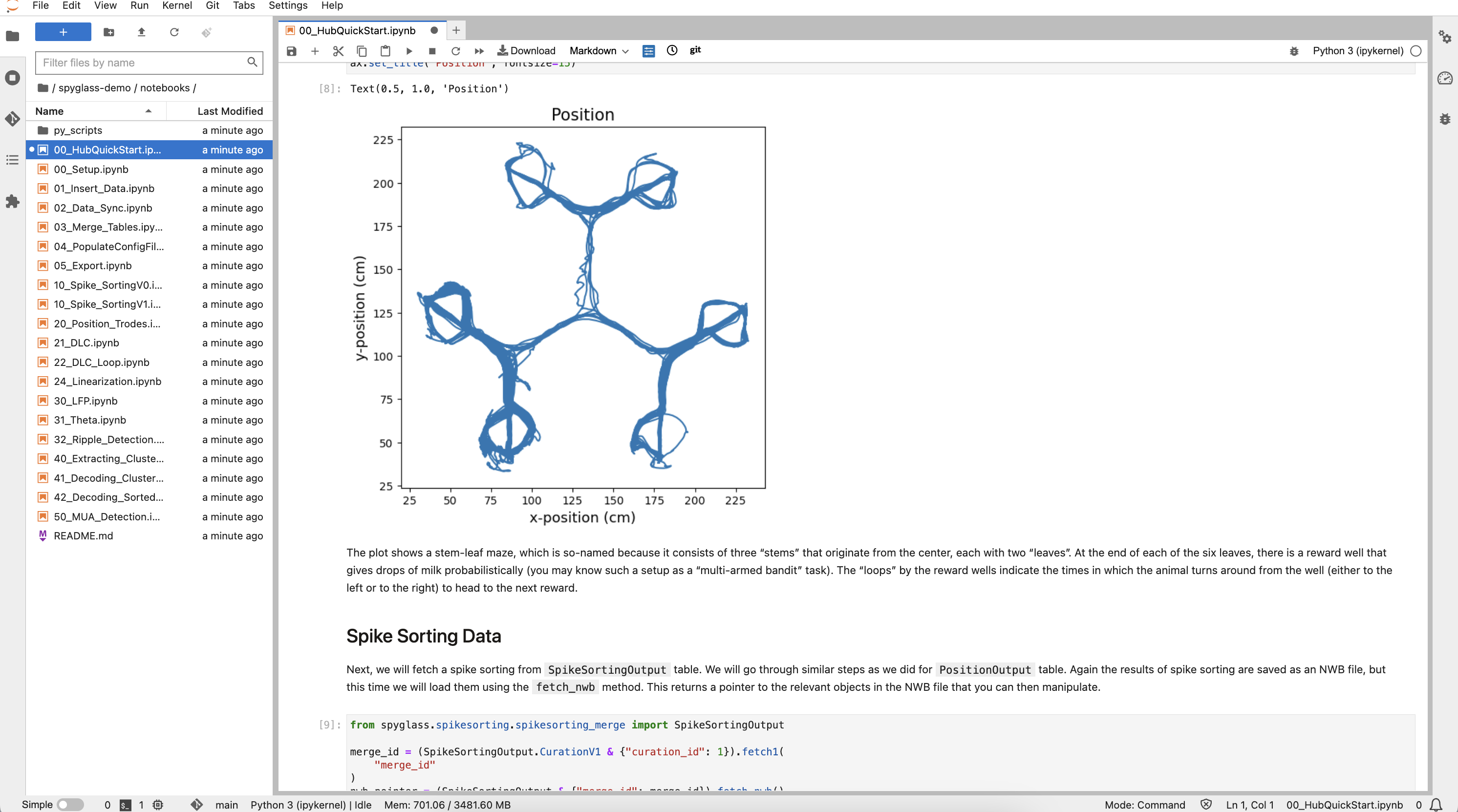We serve an international network of communities that create and share knowledge
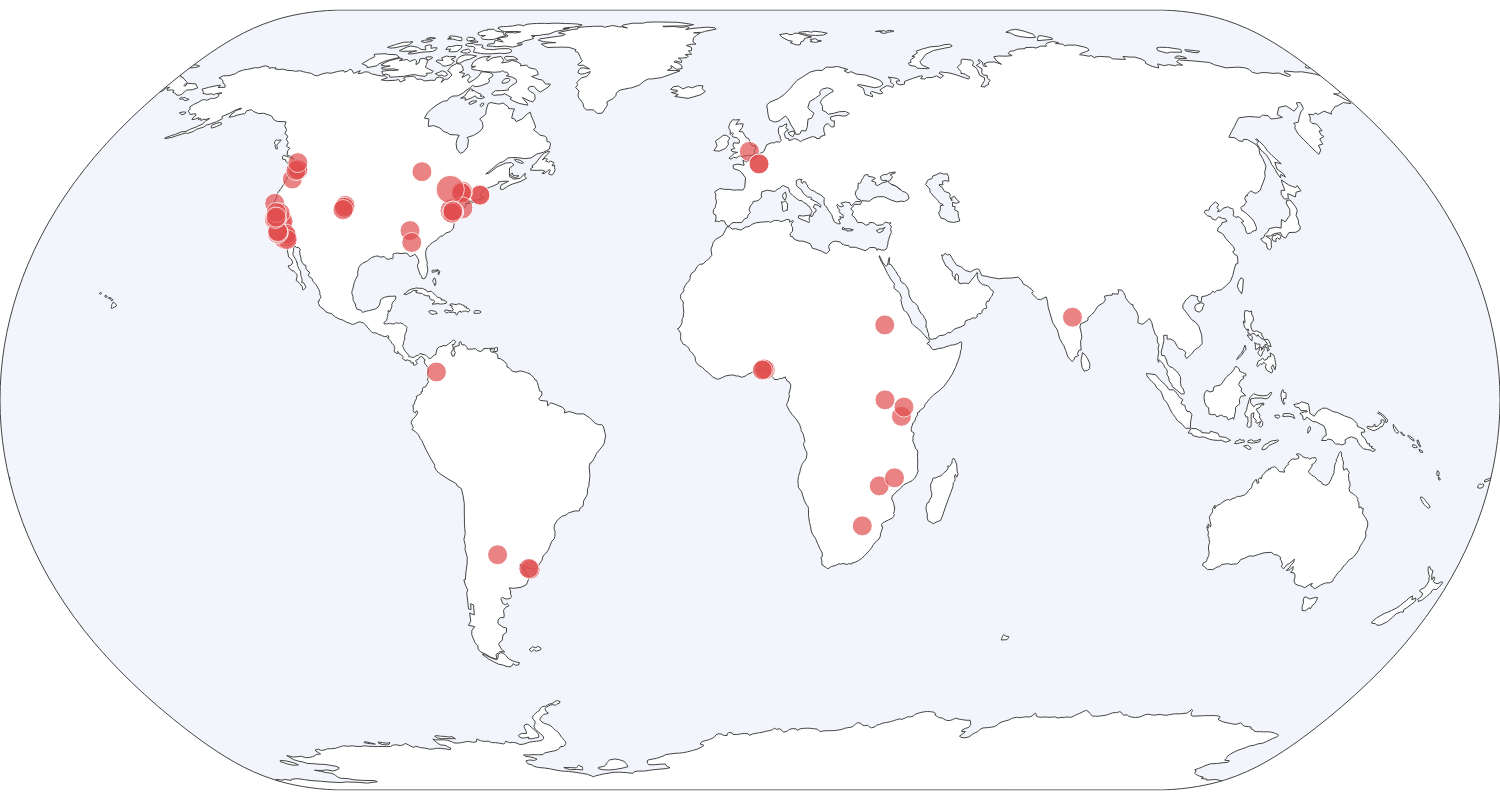
Communities
>90Active users
>6500Countries
>15Upstream PRs
>2000Community impact stories
Events, outputs, and impact from our community partners via the 2i2c blog.
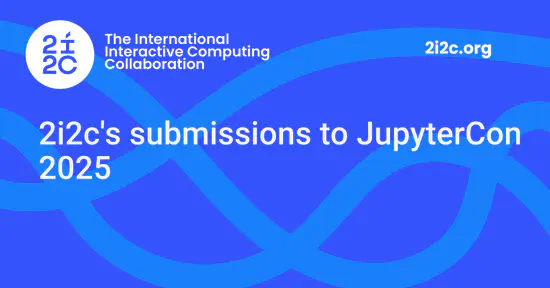
2i2c’s submissions to JupyterCon 2025
We were excited to hear that JupyterCon is happening again in 2025. The Call for Proposals just wrapped up, and our team was involved in preparing and submitting several directly from 2i2c as well as from the ecosystem in general.
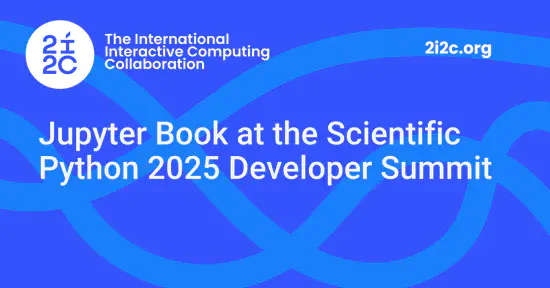
Jupyter Book at the Scientific Python 2025 Developer Summit
A post on the Jupyter Book blog about the recent Scientific Python 2025 Developer Summit.
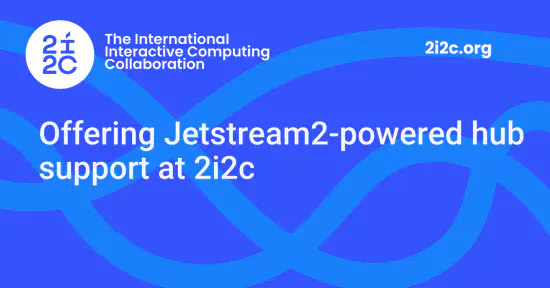
Offering Jetstream2-powered hub support at 2i2c
When we first committed to offer Jetstream2 support at 2i2c, Jetstream2, Magnum, OpenStack, ClusterAPI were all new concepts that we hadn’t used at 2i2c before. And although the initial exercise of reading about each of them independently was confusing, learning how they actually glued together was the key.
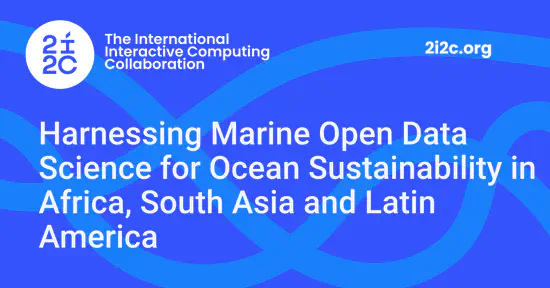
Harnessing Marine Open Data Science for Ocean Sustainability in Africa, South Asia and Latin America
Thank you to Emilio Mayorga for sharing this publication. Several community members, including Paige Martin (Australian Climate Simulator), Eli Holmes (NOAA Fisheries), and Emilio Mayorga (University of Washington) published case studies in Oceanography magazine’s “Vision for Capacity Sharing” issue.
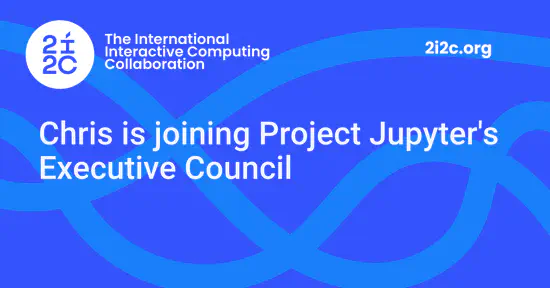
Chris is joining Project Jupyter’s Executive Council
We are proud to announce that 2i2c’s Executive Director, Chris Holdgraf, was recently elected to Jupyter’s Executive Council. The 2i2c team discussed whether Chris should run for this position last year, and concluded that it was a way for our non-profit to both support Jupyter’s mission at a strategic level, and represent the interests of research and education communities in Jupyter’s direction.
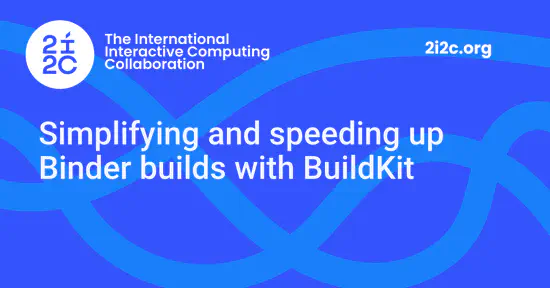
Simplifying and speeding up Binder builds with BuildKit
A blog post on the Jupyter blog about a recent experiment to significantly reduce the cost of running a node on the mybinder.org federation.
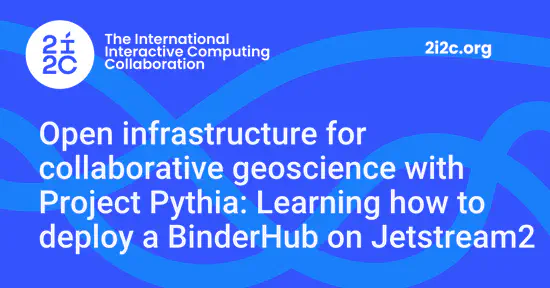
Open infrastructure for collaborative geoscience with Project Pythia: Learning how to deploy a BinderHub on Jetstream2
Project Pythia and the “Jupyter notebook obsolescence” problem # Project Pythia provides educational resources for essential software tools that enable open, reproducible and scalable geoscience, such as the Pangeo stack of packages (Xarray, Dask, Jupyter).
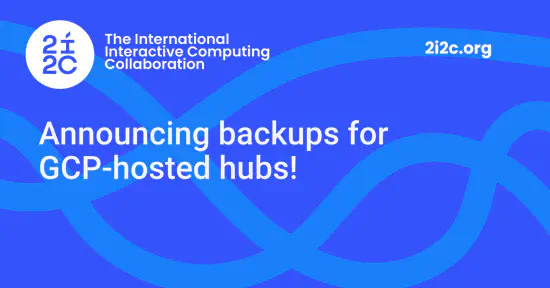
Announcing backups for GCP-hosted hubs!
2i2c are pleased to announce the development and deployment of automated backups of home directories on GCP-hosted hubs! We have developed the gcp-filestore-backups project that regularly creates backups of JupyterHub home directories for disaster recovery purposes.
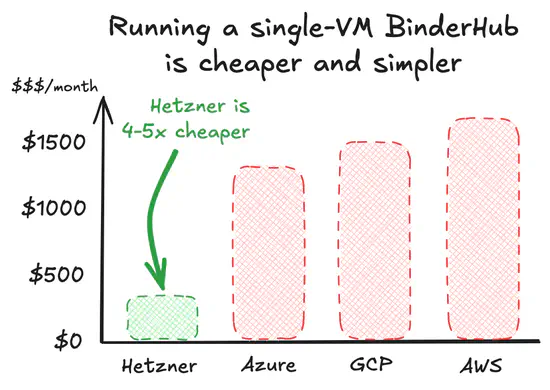
2i2c joins the mybinder.org federation with a cheaper and faster way to deploy Binderhub
If you’re interested in supporting mybinder.org with cloud resources, financial resources, or human resources, please see the Support Binder page for how you can help. tl;dr: The 2i2c team is joining the mybinder.
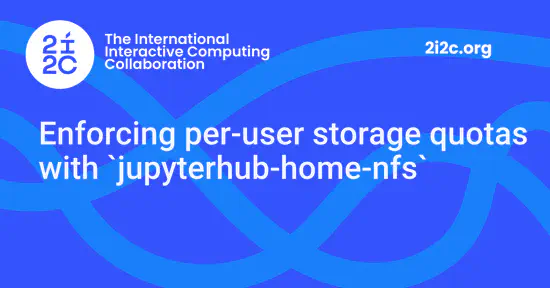
Enforcing per-user storage quotas with jupyterhub-home-nfs
When sharing a storage disk between users, as is usually the case in a JupyterHub deployment, it is important to put in guardrails so that one user cannot eat up the whole storage capacity from the rest of the users.
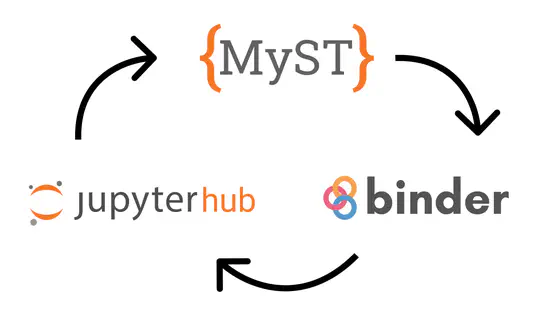
Designing for an ecosystem: a case study in cross-project open source contribution
A key challenge in the open source space is that projects are often independent and autonomous, with relatively few formal ways to collaborate and coordinate efforts. While this usually isn’t a big deal, it means that there is a missed opportunity to grow the impact of an ecosystem because it requires coordinated development among multiple stakeholders within it.
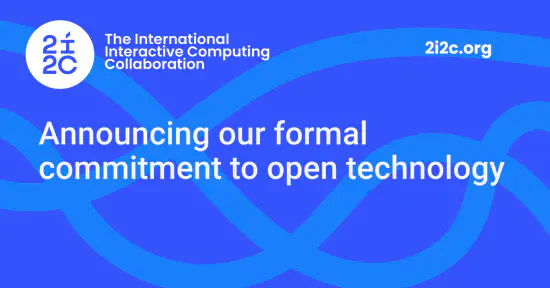
Announcing our formal commitment to open technology
In this post, we’re sharing our Commitment to Open Technology. It is focused on software licenses for reasons we’ll describe below. We hope that it clarifies what kind of licenses we’ll use, and assures our communities that we will not change our stance towards open source technology in the future.
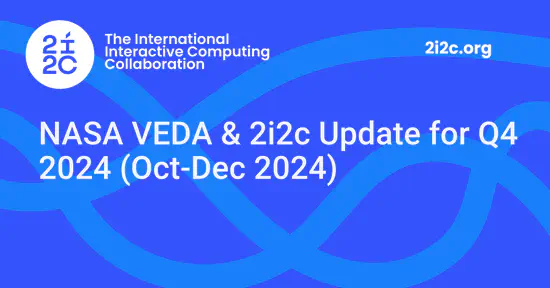
NASA VEDA & 2i2c Update for Q4 2024 (Oct-Dec 2024)
A non-exhaustive list of things 2i2c and Development Seed did with the NASA VEDA project last quarter! Automated backups and alerting with jupyterhub-home-nfs # Tracking Issue jupyterhub-home-nfs is a young project to provide flexible per-user home directory limits on JupyterHub - an important feature for controlling cloud costs.
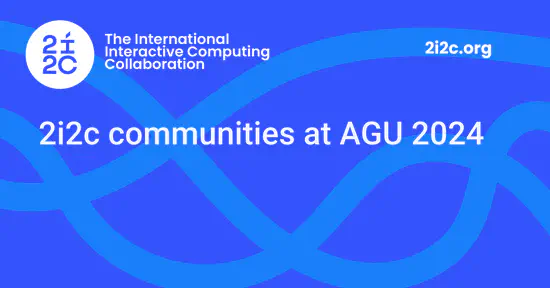
2i2c communities at AGU 2024
We are proud to share that several of 2i2c’s community partners are presenting their work at AGU 2024! In each case, 2i2c’s infrastructure plays a part in helping communities create and share knowledge, and grow their community.
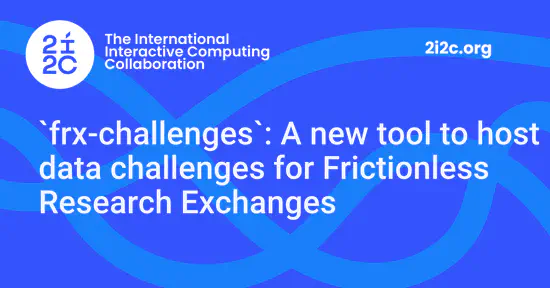
frx-challenges: A new tool to host data challenges for Frictionless Research Exchanges
2i2c is pleased to announce the frx-challenges project, a new open source tool to help communities host data challenges on shared infrastructure: 2i2c-org/frx-challenges This project aims to make it easier for administrators to provide a service that enables users to submit code and data that are evaluated on secure infrastructure with access to private data and resources.
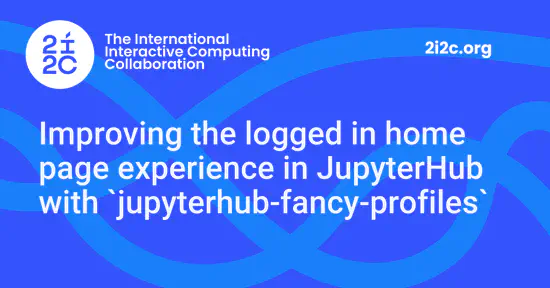
Improving the logged in home page experience in JupyterHub with jupyterhub-fancy-profiles
On most research oriented JupyterHub installations, users would like to customize their server (the environment, resources available, etc) after logging in. In Kubernetes based JupyterHub environments, a profile list provides this functionality.

Announcing the Jupyter Book 2 alpha
Cross-posted from the Jupyter Book blog. Note that some MyST functionality is not supported on the 2i2c website – please see the original post for previews. Over the last ten months, the Jupyter Book team have been hard at work; Jupyter Book has become a Jupyter subproject, and the team1 announced a plan to release Jupyter Book 2.
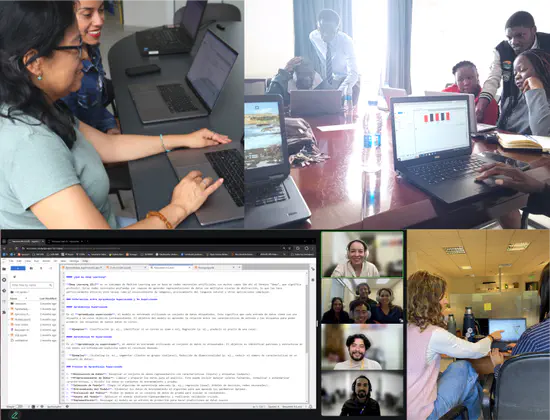
Introducing the Catalyst Project Community Partner Highlights
Cross-posted from the Catalyst Project blog Catalyst Project community partners using accessible cloud infrastructure for open science leadership and training. (clockwise from top-left) NNB-CCG, MUST, CICADA and INER. Photos courtesy of Shirley Alquicira Hernández, Bennett Kankuzi, María Inés Fariello Rico and Yalbi I.
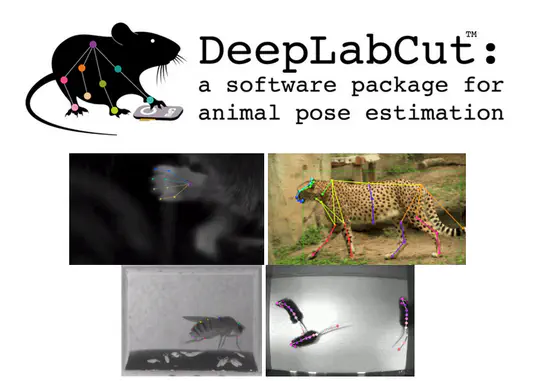
MyST Mini-Hackathon with the DeepLabCut Team
The DeepLabCut Team # Animal pose estimation using deep neural networks. Courtesy of the DeepLabCut Jupyter Book The DeepLabCut team is a group of researchers and developers who are working on open source tools for analyzing animal pose estimation by training deep neural networks on videos.
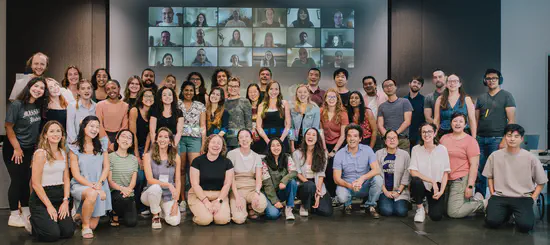
NeuroHackademy Summer School Reflections
Thank you to Ariel Rokem and Noah Benson for guest writing this blog post! Group photo from NeuroHackademy 2024 What is NeuroHackademy? # Part summer school, part free-wheeling hackathon, all focused on the use of data science methods in neuroscience, NeuroHackademy is an event that was recently hosted by the University of Washington eScience Institute in Seattle, WA, USA.
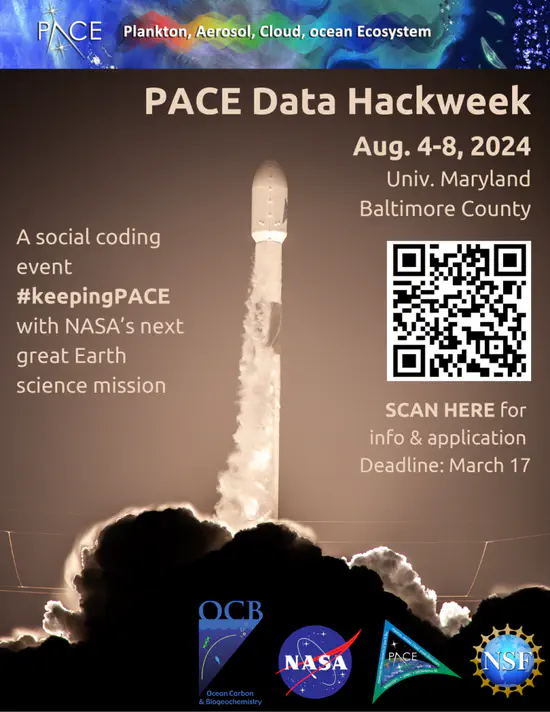
Keeping PACE with GPU enabled compute to detect global cloud cover using satellite data
(left, b&w) Model inputs and (right, color) model outputs of a simple multi-layer perceptron for detecting cloud cover. PACE is the NASA Plankton, Aerosol, Cloud, ocean Ecosystem mission that focuses on understanding ocean health and its impact on the atmosphere.
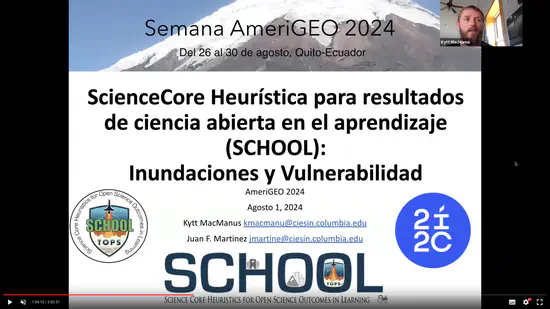
Ephemeral Interactive Computing for the AmeriGEO Workshop
AmeriGEO provides a framework for cooperation in the Americas for the use of Earth data to benefit science and society with data driven decision-making. As part of a virtual workshop held on 1st August 2024, 2i2c provided an interactive computing environment to support the delivery of a NASA TOPST water module.
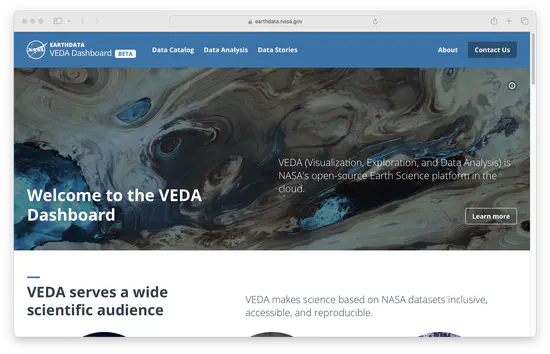
Collaborating with Development Seed to deliver cyberinfrastructure for NASA VEDA
Thank you to Sajjad Anwar and Sanjay Bhangar for contributing to this post. The VEDA dashboard The 2i2c team are proud to continue our strong working collaboration with Development Seed, following our previous work on launching the US GHG center (also see the Development Seed blog post).
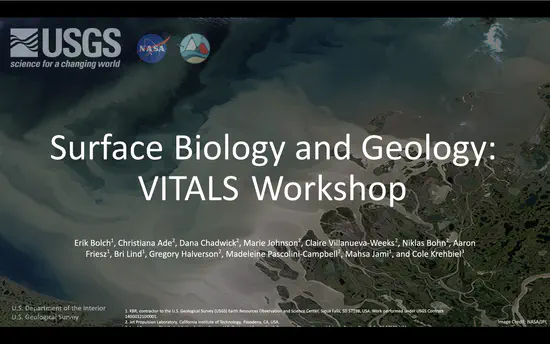
Openscapes Host a Surface Biology and Geology Workshop with Shared Password Feature
Thanks to Brianna Lind, Julia Lowndes and Andy Teucher for contributing to this blog post! Surface Biology and Geology: VITALS Workshop Openscapes is a value-based initiative that supports kinder, better science based on open source community.
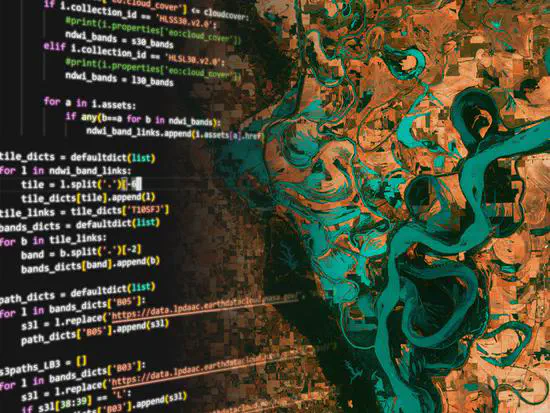
Determining Climate Risks with NASA Earthdata Cloud at Scipy 2024
Determining Climate Risks with NASA Earthdata Cloud is a ScienceCore curriculum module that comprises part of NASA’s Open Science and Transform to Open Science (TOPS) initiatives. The aim of this module is to deliver a hands-on experience with “data-proximate computing” in the cloud with NASA Earthdata products with content co-developed with MetaDocencia.
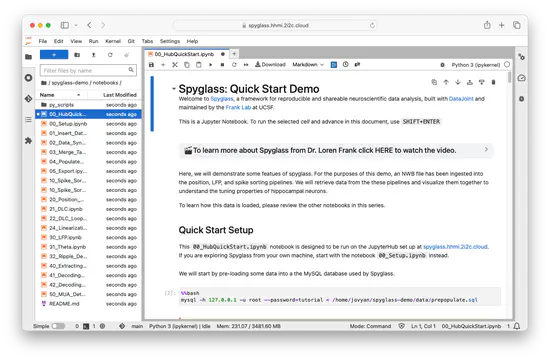
Enabling neuroscience in the cloud with HHMI Spyglass and MySQL on JupyterHub
The HHMI Spyglass tutorial Spyglass # Spyglass is a framework for reproducible and shareable neuroscience research produced by Loren Frank’s lab at the University of California, San Francisco. Check out our blog post about the release of their preprint to read more about the methods.
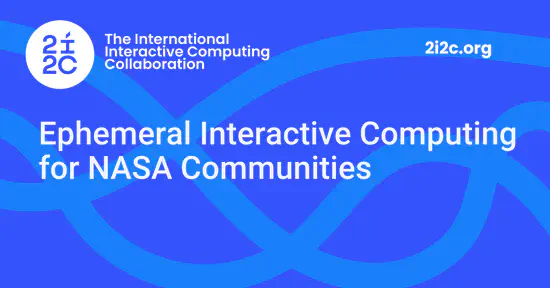
Ephemeral Interactive Computing for NASA Communities
We are pleased to announce that we have deployed two ephemeral hubs for NASA communities! What did we do? # As part of the deliverables for our NASA High Priority Open-Source Science (HPOSS) award, we deployed two new ephemeral hubs:
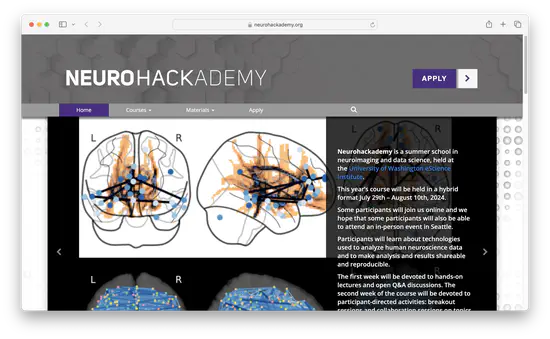
Neurohackademy Summer School in Neuroimaging and Data Science 2024
Neurohackademy Summer School 2i2c are pleased to support the Neurohackademy Summer School in neuroimaging and data science again! Following the success of our collaboration in previous years (see the event page for 2023), this year’s course will be held July 29th – August 10th, 2024 and will be hosted by the University of Washington eScience Institute.
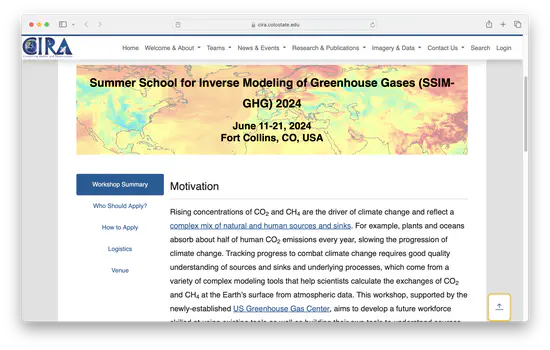
US Greenhouse Gas Center supports summer school at CIRA
Summer school for inverse modeling of greenhouse gases 2024 The Cooperative Institute for Research in the Atmosphere ( CIRA) is an interdisciplinary cooperation between NOAA research scientists and Colorado State University.
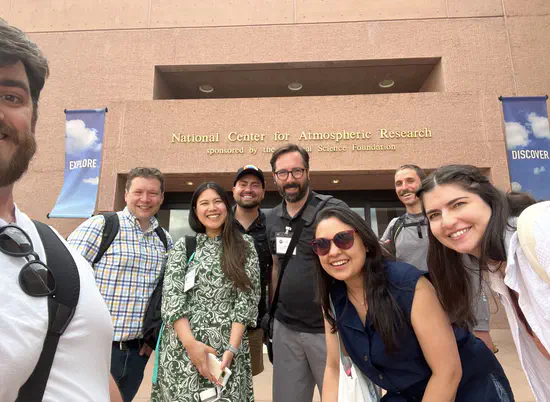
Hacking the Project Pythia Cook-off with MyST Markdown
Photo courtesy of Dr Debanjana Das What is Project Pythia? # Project Pythia is the education working group for Pangeo, a community platform for Big Data geoscience in which 2i2c operates a cloud hub.
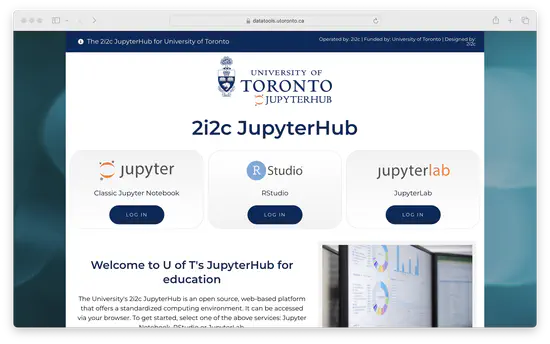
Low storage alerting for the UToronto cluster
The UToronto hub landing page 2i2c has operated The University of Toronto hub since 2021 and this hub supports over 6000 educators and learners in a day! With a community of this size, file storage can quickly grow out of control and cause issues.
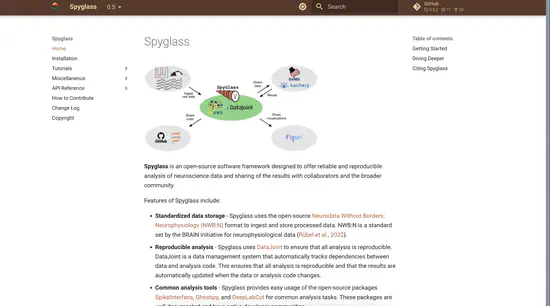
Howard Hughes Medical Institute publishes preprint on Spyglass, a framework for reproducible and shareable neuroscience research
Spyglass landing page Spyglass is a framework for reproducible and shareable neuroscience research produced by Loren Frank’s lab at the University of California, San Francisco. They recently released a preprint about their toolbox, and are using a 2i2c hub to provide accessible interactive cloud environments that demonstrate its functionality and helps researchers get started.
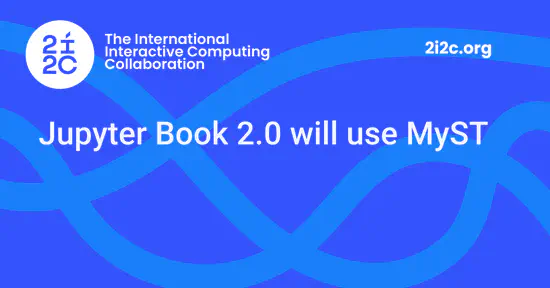
Jupyter Book 2.0 will use MyST
See the Executable Books blog for a post on the future directions of the Jupyter Book project, which will be built on top of the MyST Markdown engine.
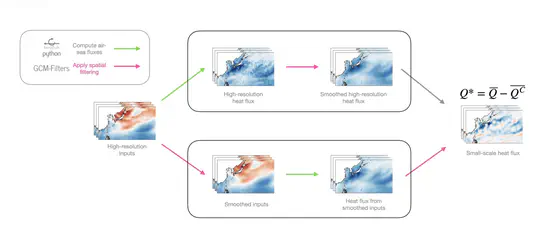
Researchers at LEAP-Pangeo investigate overlooked sub-grid air-sea heat flux in climate models
Figure from the preprint showing large and small scale air-sea fluxes are separated. By Julius Busecke et al., licensed under CC BY 4.0 Julius Busecke et al. of the LEAP-Pangeo1 hub, have recently published a preprint2 that investigates “The Overlooked Sub-Grid Air-Sea Flux in Climate Models” using 2i2c infrastructure.
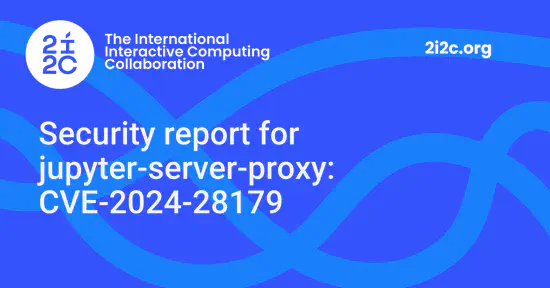
Security report for jupyter-server-proxy: CVE-2024-28179
What happened? # A few weeks ago, the JupyterHub team discovered a security vulnerability in the jupyter-server-proxy package that would allow potential unauthenticated access to a JupyterHub via WebSockets, allowing unauthenticated users to run arbitrary code on the JupyterHub.
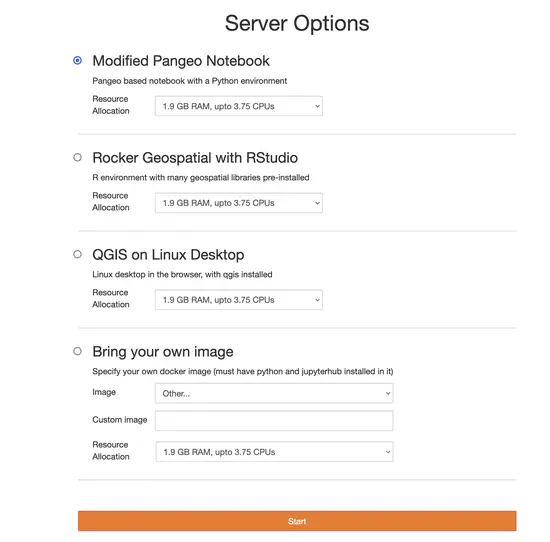
Integrating BinderHub with JupyterHub: Empowering users to manage their own environments
Thanks to Arnim Bleier, Jenny Wong, Georgiana Elena, Damián Avila, Jim Colliander and James Munroe for contributing to this blog post mybinder.org is a very popular service that allows end users to specify and share the environment (languages, packages, etc) required for their notebooks to run correctly by placing configuration files they are already familiar with (like requirements.
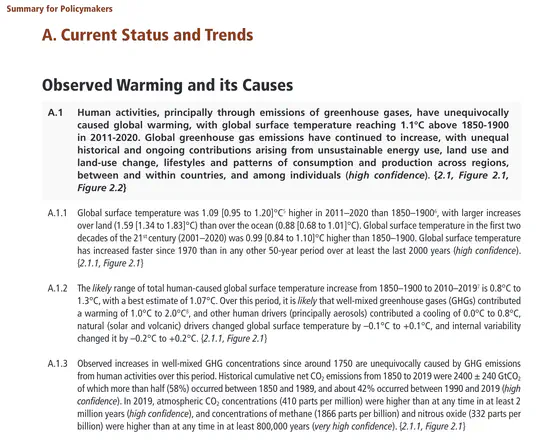
Digital public goods for Earth system management: U.S. Greenhouse Gas Center launches
Abstract The International Interactive Computing Collaboration ( 2i2c.org), working with NASA VEDA, Development Seed and other partners, operates an interactive computing platform for The U.S. Greenhouse Gas Center. The U.
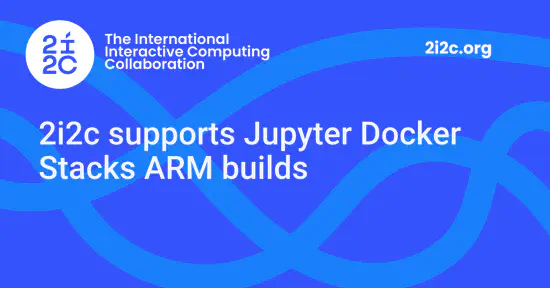
2i2c supports Jupyter Docker Stacks ARM builds
The Jupyter Docker Stacks project provides a collection of ready-to-use Docker images for Jupyter environments. These images are used by many in the Jupyter community, including 2i2c which uses them as base images for our JupyterHub deployments.
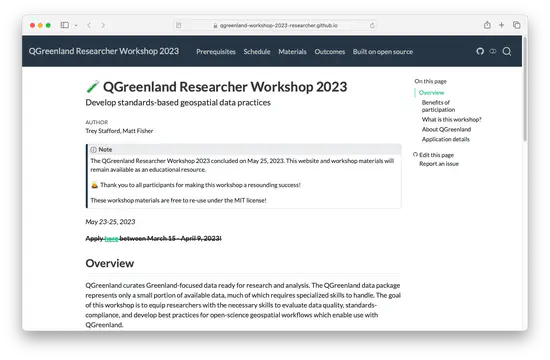
A QGIS desktop in the cloud with JupyterHub
The QGreenland Researcher Workshop JupyterHub is a versatile platform that can serve a desktop with Geospatial Information Systems (GIS) software in the cloud. This was demonstrated by the QGreenland Researcher Workshop that was hosted by the NASA CryoCloud hub.
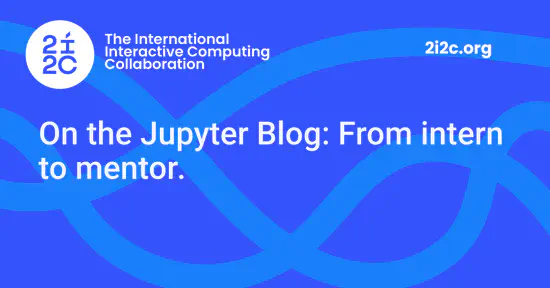
On the Jupyter Blog: From intern to mentor.
6——1———————– #
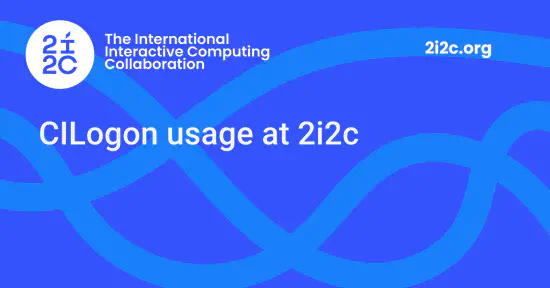
CILogon usage at 2i2c
The following is a summary of how CILogon is used at 2i2c, how the integration works and a celebration of the partnership.
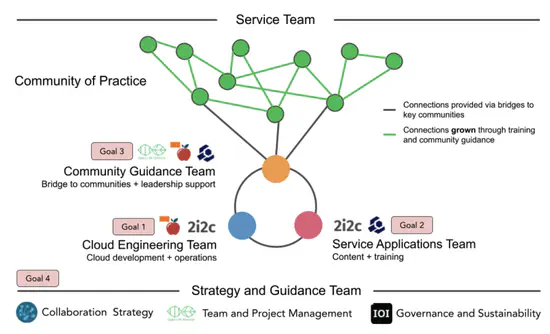
New project: Open science cloud infrastructure and training for communities in Latin America and Africa
We are excited to announce that the team and proposal described in this blog post has been awarded funding by the Chan Zuckerberg Initiative! This announcement may be cross-posted on the websites of several collaborating organizations of this grant.
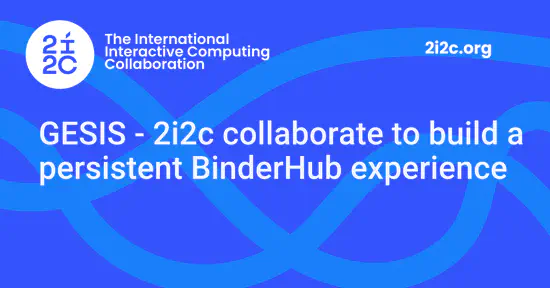
GESIS - 2i2c collaborate to build a persistent BinderHub experience
Introduction # Mybinder.org enables researchers across the world to replicate computational environments in the cloud. It allows researchers to turn static code into interactive literate coding environments with a click of a button within seconds.
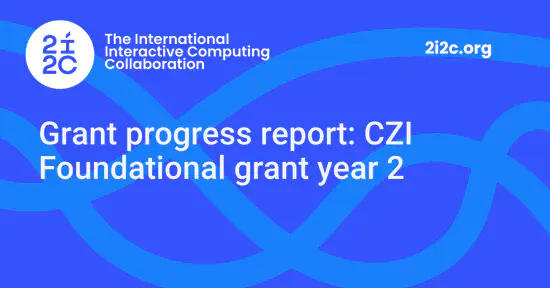
Grant progress report: CZI Foundational grant year 2
We recently completed a progress report for Year 2 of our primary CZI funding grant. This funding covers some core operations of 2i2c as well as engineering capacity to run our cloud infrastructure for JupyterHubs.
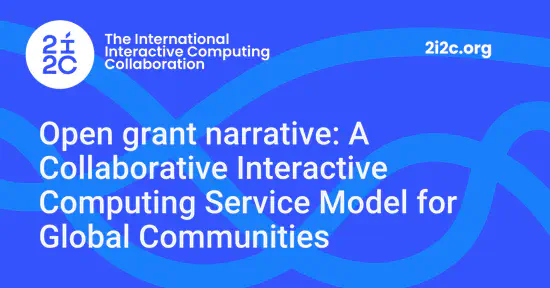
Open grant narrative: A Collaborative Interactive Computing Service Model for Global Communities
We recently submitted a grant to Chan Zuckerberg Initiative and wish to share some details about it as well as the grant narrative for others to read and re-use. Go to Zenodo record Read on for a quick overview of the proposal.
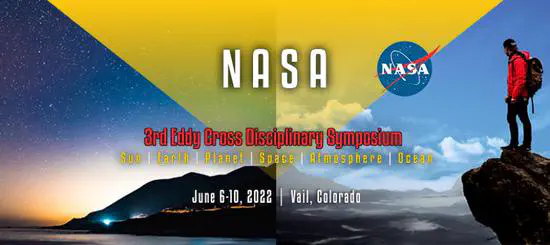
Reflections on the Jack Eddy Symposium
Reflections on the Jack Eddy Symposium # 2i2c supported and participated in the 3rd Eddy Cross Disciplinary Symposium held recently in Vail Colorado. The event was hosted by the Cooperative Programs for the Advancement of Earth System Science ( CPAESS) team at the University Corporation for Atmospheric Research ( UCAR) with support from NASA.

Pangeo Cloud goes live on 2i2c!
2i2c are pleased to announce that the first Pangeo JupyterHub is now live on 2i2c-operated infrastructure! 🎉
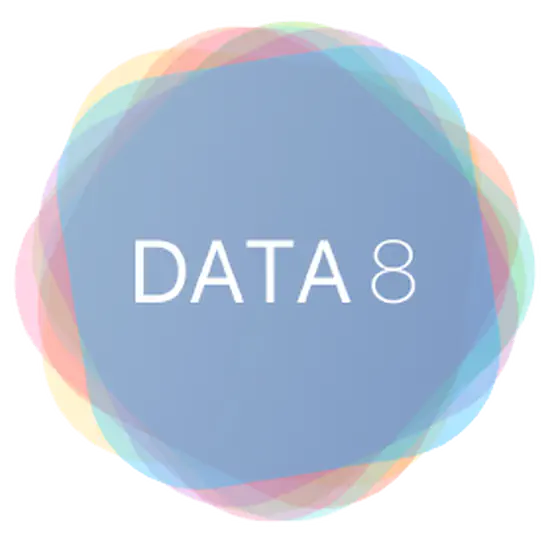
2i2c partners with UC Berkeley and CloudBank to provide data science education hubs for community colleges in California
Data8. MIT licensed. Data8 began as a large introductory data science class at UC Berkeley. It uses a Jupyter Book for all course materials, and uses JupyterHub magic links to distribute course content from the textbook.
Research community: Cryosphere research in the cloud
Cryocloud is a research hub dedicated to “accelerating discovery and enhancing collaboration for NASA Cryosphere communities”. They use their hub to provide access to NASA Earthdata cloud use a community Jupyter Book to organize training and learning within the community via community workshops.
Education community: Data 8 for Community Colleges in California
The Data 8 class began as a large introductory data science class at UC Berkeley. It uses a Jupyter Book for all course materials, and uses JupyterHub magic links to distribute course content from the textbook. 2i2c is working with the Data 8 team to deploy JupyterHubs for community colleges in California that run the Data 8 course, to make the infrastructure and content broadly accessible.
Research communities: The Catalyst Project: Serving historically marginalized communities
The Catalyst Project serves interactive computing hubs to biomedical communities in Latin America and Africa. The project is aimed at learning about the unique challenges in serving communities in global regions that are historically under-served or under-resourced, with the goal of designing effective and sustainable interactive computing services for these communities.
Research communication: The spyglass toolbox demonstration hub
Spyglass is a framework for reproducible and shareable neuroscience research produced by Loren Frank’s lab at the University of California, San Francisco. They recently released a preprint about their toolbox, and are using a 2i2c hub to provide accessible interactive cloud environments that demonstrate its functionality and helps researchers get started.
